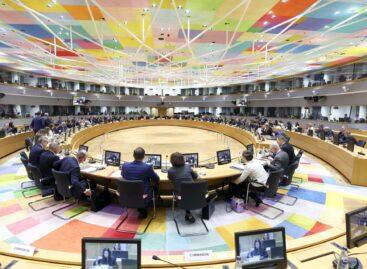Food industry investment boom possible: nearly 200 billion forints in support decided
The first decisions have been made on supporting larger-scale developments of food processors, announced István Nagy, Minister of Agriculture. Through the tender aimed at the complex development of processing plants, 114 investments will receive a total of almost 200 billion forints, so large-scale food industry projects can be launched in the coming weeks.
 The program, announced in 2023, originally started with a budget of 150 billion forints, but the 548 support applications received for the tender indicated a need for more than 700 billion forints. The ministry is therefore ensuring the highest possible support rate for domestic enterprises by reallocating the resources of the CAP strategic plan.
The program, announced in 2023, originally started with a budget of 150 billion forints, but the 548 support applications received for the tender indicated a need for more than 700 billion forints. The ministry is therefore ensuring the highest possible support rate for domestic enterprises by reallocating the resources of the CAP strategic plan.
Within the framework of the tender, companies could apply for individual support between 200 million and 5 billion forints. The aim of the support is to increase the value of agricultural products and implement technological developments that facilitate market access, through which enterprises can switch to the production of products with higher added value.
István Nagy emphasized that it is important for both the national economy and food security that as many domestically produced products as possible be placed on the tables of Hungarian families. To this end, the government has allocated a total of nearly 500 billion forints for the development of the food and processing industry, which, thanks to co-financing, represents a historic level of support for the sector.
According to the ministry, the current decisions are only the first wave: further tender results will be announced in the coming weeks, while another tender with a budget of 20 billion forints will be announced in the autumn for smaller-scale developments in food processors.
According to the expectations of the Ministry of Agriculture, the investments now being launched will not only increase productivity and competitiveness, but also partially replace the scarce human workforce, contributing to the modernization of the entire sector.
Related news
One of Hungary’s largest wind power plant investments starts in the Kisalföld
🎧 Hallgasd a cikket: Lejátszás Szünet Folytatás Leállítás Nyelv: Auto…
Read more >The guarantee of support for farmers is the preservation of an independent, autonomous agricultural policy
🎧 Hallgasd a cikket: Lejátszás Szünet Folytatás Leállítás Nyelv: Auto…
Read more >Related news
Historic price reduction at ALDI
🎧 Hallgasd a cikket: Lejátszás Szünet Folytatás Leállítás Nyelv: Auto…
Read more >A stable compass in the Hungarian FMCG sector for 20 years
🎧 Hallgasd a cikket: Lejátszás Szünet Folytatás Leállítás Nyelv: Auto…
Read more >








